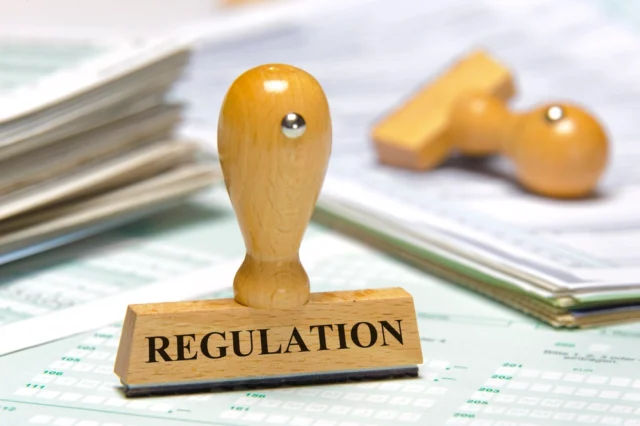Responsible Beverage Service (RBS) training is a requirement for anyone serving or selling alcohol in California. This training is designed to help prevent the sale of alcohol to minors and intoxicated individuals, and to reduce alcohol-related incidents such as drunk driving and alcohol poisoning.
If you are involved in the sale or service of alcohol in California, it is essential to understand what RBS training entails, how to get certified, and how to stay compliant with state regulations. By the end of this write-up, you will be able to familiarize yourself with what all the California RBS training includes.
What Is RBS training?

RBS training is a program that teaches individuals who sell or serve alcohol how to identify and prevent alcohol-related incidents. The training covers topics such as the effects of alcohol on the body, how to recognize signs of intoxication, and how to refuse service to customers who are underage or already intoxicated. RBS training aims to reduce alcohol-related incidents and promote responsible alcohol service.
Who Needs RBS training?
Anyone who serves or sells alcohol in California is required to complete RBS training. This includes bartenders, servers, bouncers, and store clerks who work in businesses that sell alcohol. Even if you work in an industry that serves alcohol only occasionally, such as a catering company, you may still be required to complete RBS training.
How Do You Get RBS Certified?
To become RBS certified, you must complete a training course from a state-approved provider. There are several providers that offer RBS training in California, both online and in-person. The system typically takes a few hours to complete and includes a final exam. Once you pass the exam, you will receive a certificate of completion that is valid for three years.
How Do You Stay Compliant With RBS Regulations?

To stay compliant with RBS regulations in California, you must ensure that all employees who serve or sell alcohol are RBS certified. You should also keep records of all employees’ certification status and make sure that their certifications are up-to-date. It is also important to review and follow the state’s laws and regulations regarding alcohol service and sales, including those related to ID checking, service to intoxicated customers, and hours of operation.
In addition, you should make sure that your employees are trained to recognize and handle situations involving underage customers and customers who are already intoxicated. This includes knowing how to refuse service, when to call for assistance, and how to handle potentially dangerous situations.
What Are The Consequences Of Non-Compliance?
Non-compliance with RBS regulations can result in fines and other penalties. For example, businesses that violate California’s alcohol laws can be subject to fines, suspension or revocation of their alcohol license, and even criminal charges in some cases. Employees who violate RBS regulations can also face fines and other penalties and may even lose their jobs.
Benefits Of RBS Training

RBS training is essential for each individual involved in the sale or service of alcohol in California. There are several benefits to completing RBS training, including:
- Reduced Liability: By completing RBS training, employees will be better equipped to handle situations involving underage or intoxicated customers, reducing the risk of liability for the business and the employee.
- Improved Customer Service – RBS training provides employees with the knowledge and skills needed to provide responsible and quality customer service. This can improve the customer’s experience and increase business for the establishment.
- Compliance with State Regulations – RBS training is a legal requirement in California, and completing the training ensures compliance with state regulations. This can help businesses avoid fines and penalties.
- Reduced Incidents – RBS training is designed to prevent alcohol-related incidents such as drunk driving, alcohol poisoning, and other dangerous situations. By completing the training, employees can help reduce the number of incidents and keep the community safe.
Types Of RBS Training
There are several types of RBS training available in California. Read below to find out what all they include:
- On-Site Training – On-site training is provided by a state-approved provider at the establishment where employees work. This type of training is beneficial for businesses with a large number of employees and can be customized to meet the establishment’s specific needs.
- Online Training – Online training is a convenient option for employees needing more time or resources to attend in-person training. Online courses are typically self-paced and can be completed from anywhere with an internet connection.
- Classroom Training – Classroom training is an in-person option for employees who prefer a more traditional learning experience. State-approved providers typically offer classroom training and may require employees to attend a specific location at a set time.
Staying Compliant With RBS Regulations

To stay compliant with RBS regulations in California, businesses should:
- Ensure all employees who serve or sell alcohol are RBS certified.
- Keep records of all employees’ certification status and ensure their certifications are up-to-date.
- Review and follow the state’s laws and regulations regarding alcohol service and sales, including those related to ID checking, service to intoxicated customers, and hours of operation.
- Train employees to recognize and handle situations involving underage customers and customers who are already intoxicated. This includes knowing how to refuse service, when to call for assistance, and how to handle potentially dangerous situations.
Consequences Of Non-Compliance
Non-compliance with RBS regulations can result in fines and other penalties for businesses and employees. It is essential to stay up-to-date with state regulations and ensure all employees are trained and certified to provide responsible alcohol service. By staying compliant, businesses can avoid fines and penalties and maintain a safe and responsible environment for their customers and community.
Conclusion
RBS training is an essential component of responsible alcohol service in California. It is crucial for anyone involved in the sale or service of alcohol to understand the requirements for RBS certification, how to get certified, and how to stay compliant with state regulations. By completing RBS training and following state laws and regulations, you can help prevent alcohol-related incidents and promote responsible alcohol service in your community.







